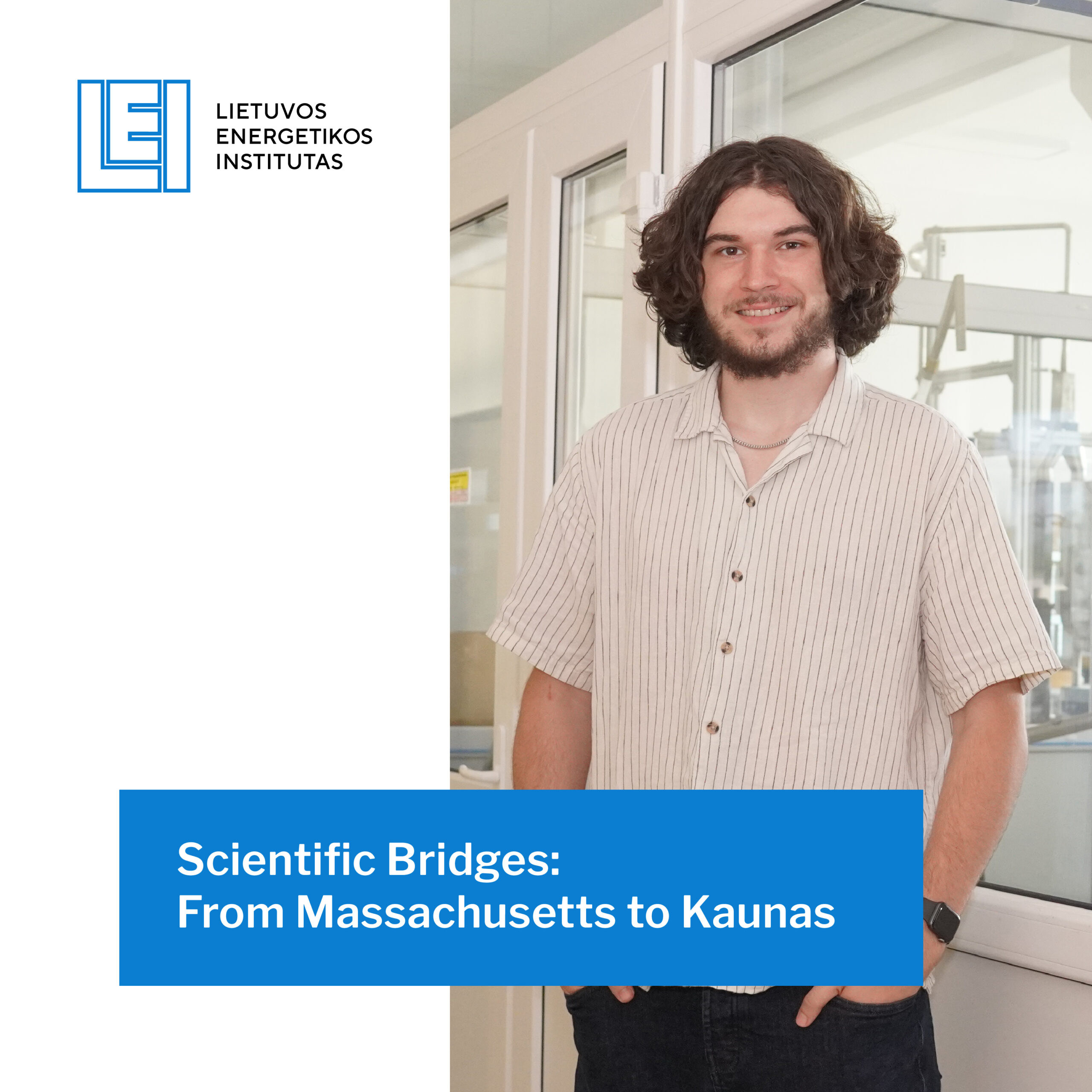In June, Lance Berkey, a bachelor’s student studying physics and mathematics at the Massachusetts Institute of Technology (MIT), began a two-month internship at the Lithuanian Energy Institute. He came to Lithuania through the prestigious MIT International Science and Technology Initiatives (MISTI) program, which enables MIT students to participate in research and innovation projects abroad. Lithuania is one of the program’s partner countries, and LEI is one of the hosting institutions.
Focus on Lithuania
L. Berkey is interning at LEI’s Laboratory of Heat Equipment Research and Testing. His work focuses on molecular dynamics (MD) simulations of material degradation due to hydrogen infiltration. Currently, he is modeling deformation in the crystal lattice of alpha-iron to assess how hydrogen affects the stress–strain curves of the lattice.
Although L. Berkey studies physics and mathematics, his minor is in Eurasian studies. This partially influenced his decision to choose Lithuania as his internship destination.
“I was considering spending my summer internship in Europe, and Lithuania seemed particularly appealing. We have one Lithuanian professor at MIT who always speaks highly of the country, so I had already heard positive things. When I started looking for internship opportunities, the MISTI program coordinator suggested the Lithuanian Energy Institute. After my first conversation with LEI representatives, I realized this place was a perfect match for my skills and expectations – so I decided to come,” he explains.
A Valuable Experience
During his internship, L. Berkey carried out computer modeling and data analysis in the field of molecular dynamics, examining the damage caused by hydrogen infiltration in alpha-iron. As he is set to return to the U.S. at the end of July, he is now summarizing results and writing his final report.
According to him, hydrogen will play an increasingly significant role in the energy sector, making it crucial to understand its impact on materials. He appreciates the opportunity LEI provided to deepen both theoretical and practical knowledge in this field.
“My internship at the Institute truly stood out – I felt very free and independent here. The supervisors allowed me to work at my own pace, encouraged me to find solutions independently, but were always ready to help when needed. I really value that – independence in learning is extremely important. I was also impressed by the Institute itself – its size, modern infrastructure, variety of research, and the experienced scientists working here. I would definitely recommend an internship at LEI to any student interested in the energy sector,” he says with a smile.
Considering a Return
L. Berkey also enjoyed getting to know Lithuania and Kaunas. He was impressed by the friendliness of the locals, the green city environment, and the convenient infrastructure. Lithuania left a very positive impression on him, and he would like to return in the future.
“The internship at LEI opened up new perspectives for me. Until now, I was certain I wouldn’t pursue a PhD immediately after my master’s, but now I’m seriously considering it. I enjoyed doing research and working in the lab, so I think this could be a direction I take in the future,” L. Berkey concludes.






